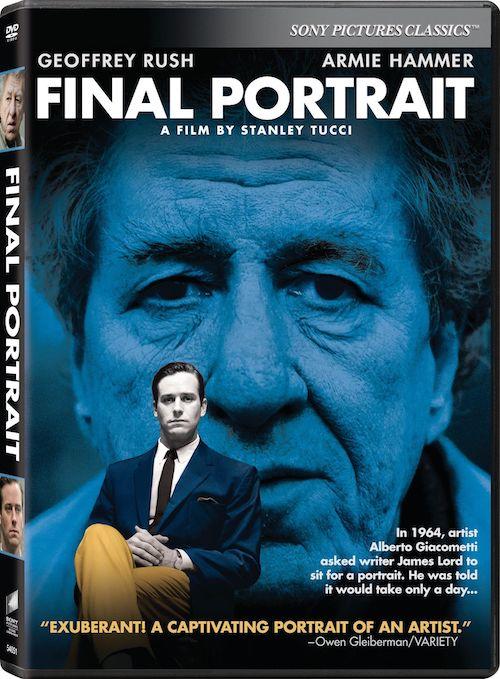"Final Portrait" (out now on DVD and Digital) tells the story of noted author and WWII veteran James Lord's real-life 1964 encounter in Paris with the famed artist Alberto Giacometti.
The writer agrees to sit one afternoon for a portrait but Giacometti's complicated process lures Lord into a weeks-long drama as the artist tries to satisfy his muse.
The movie is inspired by Lord's book "A Giacometti Portrait." He's a key chronicler of the 20th art scene, also writing a memoir of his relationship with Pablo Picasso and Dora Maar and the definitive biography of Giacometti.
Lord is one of those GIs who made a life for themselves in Europe after the war. Part of the reason may have been the homosexuality he kept hidden during his military service. "Final Portrait" doesn't explicitly explore that aspect of Lord's life, but there is an unseen and unnamed partner pressuring Lord to return to New York in a series of transatlantic phone calls while Giacometti stalls on finishing the portrait.
"Final Portrait" was written and directed by Stanley Tucci, who's perhaps best known for his work as an actor in "The Hunger Games" movies and "Spotlight." He's also written and directed several indie films, including the indie classic "Big Night."
Armie Hammer plays a version of Lord who's at least a decade younger than the author was at the time of the real incident. Maybe that's the reason why Lord's WWII service never comes up in the movie, but the handsome actor probably makes for a more attractive portrait subject than the middle-aged author was in real life.
The movie is really about artistic obsession and one painter's struggle to realize his vision. Geoffrey Rush is by turns tortured, frustrating, charming, irritating and transcendent in the role of an artist who thrived in an era when his bad behavior was celebrated.






